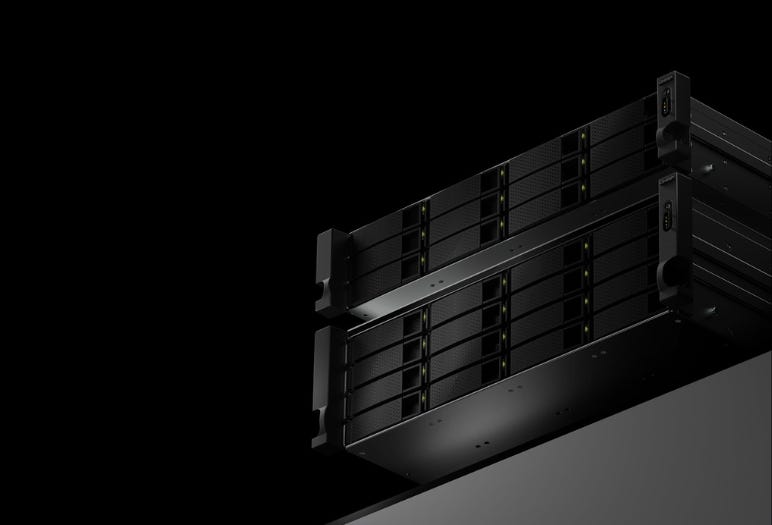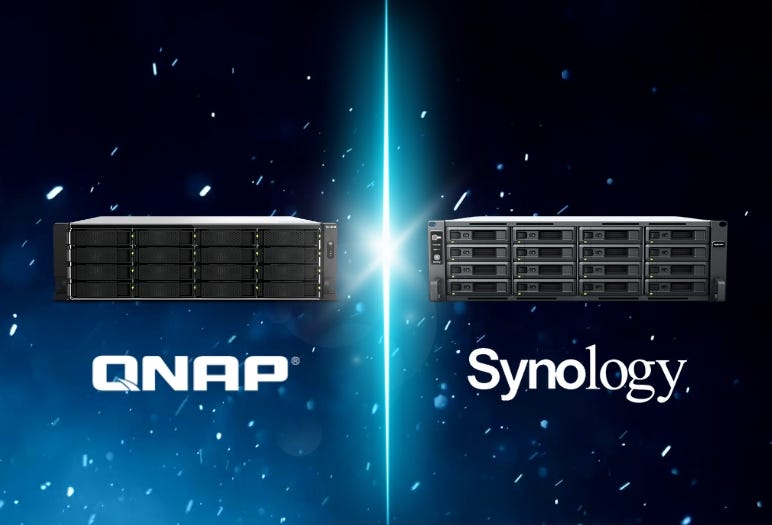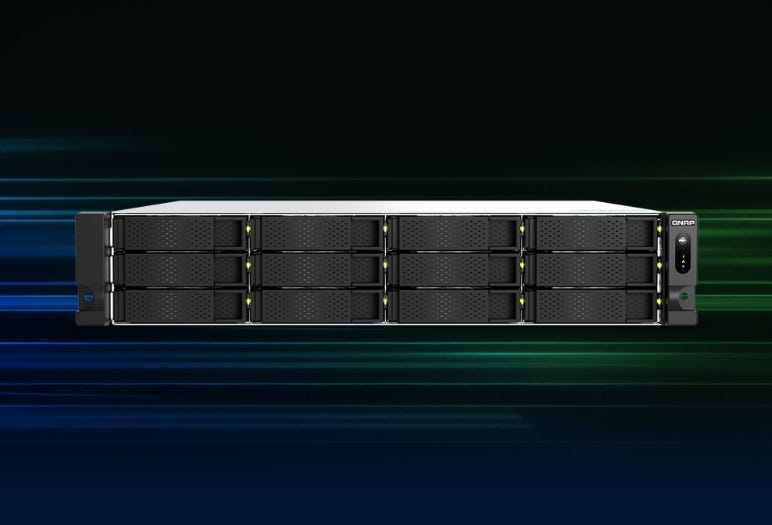Loading...
Checkout using your account
Checkout as a new customer
Creating an account has many benefits:
- See order and shipping status
- Track order history
- Check out faster
Checkout using your account
Checkout as a new customer
Creating an account has many benefits:

For years, Synology has held a strong foothold in the NAS market thanks to its clean UI and reliability. But for performance-driven IT teams and businesses scaling up AI, virtualisation, and high-throughput workflows, QNAP is fast becoming the smarter, future-ready alternative.
Let’s break down the real differences—backed by hardware specs—to show why it’s time to seriously consider switching.


Why it matters: Faster caching is essential for AI inference, high-transaction databases, and VDI deployments where latency is critical.
QNAP outmatches Synology when it comes to performance, flexibility, and futureproofing, offering:
Example:
QNAP TS-H1677AXU-RP-R7-32G supports:
Compare that to Synology RS2821RP+, which has just:
Use case: Ideal for AI/ML, GPU-accelerated applications, or environments needing multi-10GbE connectivity.
Why it matters: QNAP enables end-to-end growth from SMB deployments to full-scale data centers—without a forklift upgrade.
| Model | CPU | Max RAM |
| QNAP TS-H1886XU-RP R2 | Xeon D-1622 | 128GB ECC |
| Synology RS3621xs+ | Xeon D-1541 | 64GB ECC |
| QNAP TS-H1277AXU-RP-R7 | Ryzen 7 7700 | 192GB DDR5 |
| Synology RS3618xs | Xeon D-1521 | 64GB ECC |
Result: QNAP leads in memory scalability and compute power—translating into smoother VM hosting, faster analytics, and better performance under load.


At DiGiCOR, we’ve observed a growing trend—businesses reaching the performance limits with Synology and migrating to QNAP for:
We are able to work closely with IT teams across sectors—from healthcare and government to engineering and education—to map your workload to the right QNAP solution.
DiGiCOR is your trusted partner for future-ready NAS infrastructure—whether you're an SMB, enterprise, or research institution. We provide:
Talk to our team today for a high-performance NAS that grows with your business and eliminates bottlenecks.
